Which electric boiler is better for heating a private house
How not to make a mistake when choosing an electric boiler for a home heating system? Moreover, at present, on sale, you can find quite a lot of their different types and models. In order to determine which electric boiler is better for heating a private house, let's get acquainted with their main types and find out the advantages, disadvantages and features of the operation of each of them ...
Electric boilers for heating systems of private houses may differ:
The power of electric boilers can be from 1 to 18 kW and more.
The choice of power depends, firstly, on the purpose for which the boiler is purchased. If it will be the main source of thermal energy for the heating system, then its power is calculated in accordance with the area (volume) of the heated space and the heat loss of the external building envelope (walls, windows, doors, floor, ceiling, roof). On average, you can focus on the indicator of 1 kW of boiler power per 10 m 2 of the area of \u200b\u200bthe house.
If the electric boiler is planned to be used as additional heating, for example, in tandem with a boiler that runs on a different type of fuel (gas, solid fuel), then its power may be less - 1-4 kW.
The maximum power of the electric boiler also depends on what voltage it is designed for: 220 V (single-phase current) or 380 V (three-phase). Single-phase boilers rarely have a power of more than 6-7 kW. Therefore, if you need an electric boiler of greater power, you need to take care of the presence of a three-phase input in the house.
Types of electric boilers according to the method of heating the coolant
Among the whole variety of electric boilers, according to the method of heating the coolant, three types can be distinguished:
- TENovye or electric boilers with tubular heaters;
- Electrode;
- Induction.
Each of these types of electric boilers has its own design features, advantages and disadvantages, which may affect the choice of one or another option. Therefore, in order to find out which one is best suited for heating a private house, we will consider them in more detail.
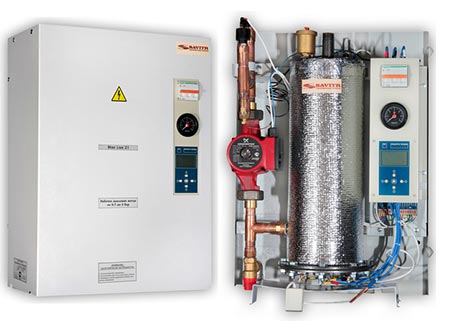
TENovy electric boiler
Electric boilers of this type have been known for a long time. To heat the coolant in them, one or more tubular heating elements (heaters) are used - this depends on the design and power of the unit. The heating element is a metal tube with a spiral inside.

Electrode electric boilers
A boiler of this type heats water (or a special liquid) - the heat carrier of the heating system, using its ability to heat up, flowing between two electrodes to which an alternating voltage is applied. The liquid - heat carrier (water or special) in this case is one of the elements of the electrical circuit and must have certain properties:
- Have a strictly defined electrical conductivity, which means the presence of salt ions or hardness;
- Have no mechanical contamination, as solid particles can lead to premature destruction of the electrodes.
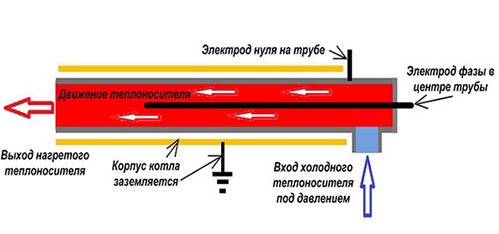
The principle of operation of electrode electric boilers
Such electric boilers can be both single- and three-phase, with power from 1 to 16 kW.
Advantages:
- Simple design and small size;
- Small cost;
- Lack of heating elements and related troubles (scale, burnout of the spiral);
- Sudden or temporary absence of coolant in the system does not lead to boiler failure;
- Low sensitivity to voltage drops in the network - although there is a decrease in power, the boiler will continue to work;
- Low inertia - allows you to quickly heat the coolant in the heating system and quite effectively regulate the operation in automatic mode.
Flaws:
- The coolant in the system must have a certain electrical conductivity, which must be controlled and maintained at the same level;
- It is not possible to use an ordinary anti-freeze liquid in the system, and the cost of a special one is quite high;
- During the electrolysis process, a certain amount of electrolysis gases is released;
- The power of this type of boiler depends on the temperature of the coolant - with its increase, its electrical conductivity and consumed electrical power increase;
- A fairly reliable grounding is required, since due to the specifics of the operation of such boilers, it is not possible to use protective shutdown devices, and, consequently, the likelihood of electric shock increases;
- The complexity of the implementation of step power control;
- Over time, due to electrolysis, wear of the electrodes occurs.
![]()
Induction electric boiler
This type of boilers appeared relatively recently. Therefore, they are sometimes confused with ionic (electrode). But their work is based on a completely different demand for heating the coolant - with the help of an induction current that occurs in a ferromagnet heat exchanger. For example, induction electric stoves work according to this principle.
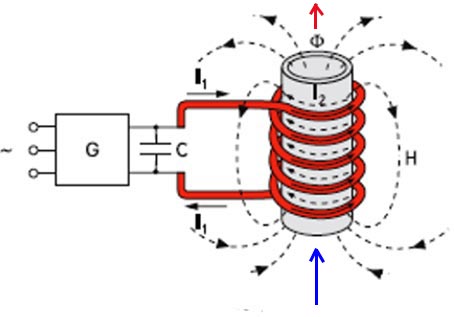
The principle of operation of an induction electric boiler
The design of such an electric boiler is a housing in which an inductor winding is placed, inside of which a metal core-heat exchanger is placed. The heat exchanger can be made in the form of a labyrinth of pipes or cavities. Voltage is applied to the case winding (coil-inductor). The electromagnetic field created in this case very quickly heats the metal core, which, in turn, gives off this heat to the heat carrier of the heating system flowing through it.
The quality and type of coolant for such a boiler do not play a big role, since the microvibrations that occur in the core practically prevent the appearance of scale on the walls of the heat exchanger. As a coolant, you can use ordinary water of any hardness, as well as antifreeze or even oil.
Due to the absence of scale, the efficiency of such a boiler does not decrease over time, and the service life is quite large - manufacturers promise 30 years or even more.
Advantages of an induction electric boiler:
- Any type of coolant can be used;
- There is no need to replace heating elements (heaters or electrodes);
- Work efficiency does not decrease due to scale, since it practically does not form in the heat exchanger;
- Fast heating (about 5-7 minutes);
- Safe work;
- Long service life.
Flaws:
- The price is higher than heating elements or electrode ones;
- Can only be used in a closed heating system with forced circulation;
- The weight of such an electric boiler is greater than other types - about 30-40 kg, depending on the power.
Which one is better to choose?
Having found out what electric boilers can be, we can conclude that if you do not take into account the cost factor, then an induction electric boiler is best for heating a private house: it has a rather long service life and any type of coolant in the system can be. If the cost of the boiler is crucial for you, then it is better to stop your choice on a time-tested heating element electric boiler or a newer electrode boiler. But then you have to come to terms with the shortcomings that such units have. Moreover, there will be fewer problems during operation with the heating element.
As for the efficiency of work, then, in practice, the efficiency of all types of electric boilers is initially quite large - more than 95%. And the only difference is that in some units it may decrease over time due to the action of certain factors. For example, in heating element boilers, this can occur due to scale on the heating elements, and in electrode boilers, due to a change in the electrochemical properties of the coolant or its temperature. In induction boilers, theoretically this problem does not exist, but this type has not yet been sufficiently tested in practice. So, we have provided you with information for reflection, and the choice, as always, is yours.
 Masonry mortars for brick kilns
Masonry mortars for brick kilns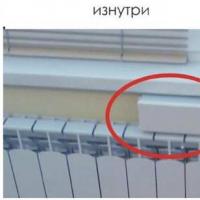 Why do the windows fog up in the apartment
Why do the windows fog up in the apartment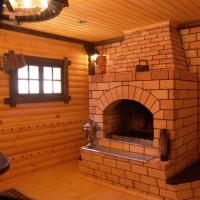 Construction and schemes of brick ovens
Construction and schemes of brick ovens How to lay paving slabs: tips and tricks
How to lay paving slabs: tips and tricks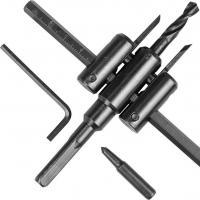 How to drill bathroom tiles
How to drill bathroom tiles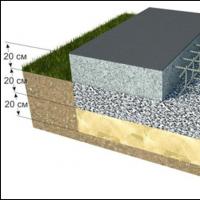 Monolithic slab on coarse soil
Monolithic slab on coarse soil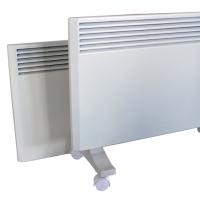 Which electric heater is economical
Which electric heater is economical